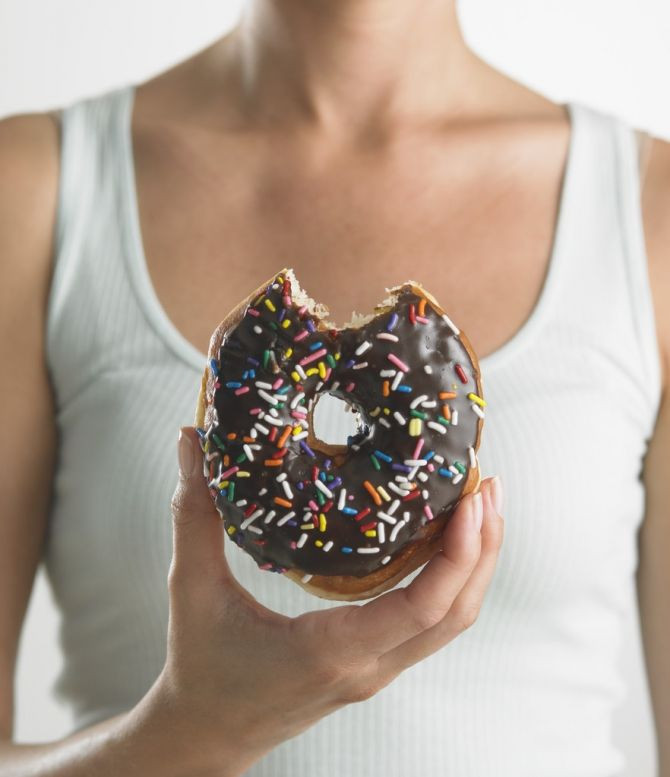Dieters Who Have Dessert With Breakfast Lose More Weight, Keep Off More Pounds

Eating dessert with breakfast may help dieters keep off lost weight, according to a new study.
Researchers, presenting at The Endocrine Society's 94th Annual Meeting in Houston, found that dieters who ate a high carbohydrate and protein rich breakfast that included dessert were had less hunger and cravings throughout the day and were able to keep off lost weight compared to those who ate a lower calorie breakfast.
"The goal of a weight loss diet should be not only weight reduction but also reduction of hunger and cravings, thus helping prevent weight regain," principal investigator Dr. Daniela Jakubowicz, a senior physician at Tel Aviv University's Wolfson Medical Center in Holon, Israel, said in a statement.
Jakubowicz and her team randomly assigned nearly 200 adults who were not obese or diabetic and to eat one of two low-calorie diets. Both diets contained the same amount of daily calories, with men having a daily 1,600 calorie diet and women a 1,400 calorie diet, but differed in the composition of breakfast.
One group received a low-carbohydrate diet with a 304-calorie breakfast that contained only 10 grams of carbs while the other group ate a 600-calorie breakfast with 60 grams of carbs that included a small sweet snake, like a piece of chocolate, doughnut, cookie or cake.
Participants in both groups had lost an average of 33 pounds about halfway into the eight-month, suggesting that "both diets work the same," Jakubowicz said.
However in the last half of the study, participants in the low-carb group regained an average of 22, while dieters who ate the dessert with breakfast diet lost on average another 15 pounds, the authors reported.
Dieters who were assigned to eat dessert for breakfast also reported having less hunger, fewer cravings and were also better at sticking to their calorie requirements compared to the participants in the other group.
Additionally researchers found that levels of ghrelin, the so-called "hunger hormone," dropped significantly more after breakfast than in the dessert group at 45.2 percent compared to the low-carb group at 29.5 percent.
Jakubowicz said that the latest findings, published in the journal Steroids, suggest that participants in the dessert breakfast diet group may have lost and kept off more weight because the diet's high protein content reduced hunger, the combination of protein and carbs increased satiety or feelings of fullness, and the dessert decreased cravings for sweet, starchy and fatty foods.
She said that such sweet and fatty food craving after occur when a diet restricts sweets, and can result in dieters eating many more fattening foods that aren't allowed on the diet. Jakubowicz said that eating a higher proportion of our daily calories at breakfast is not only good for body function, but it also alleviates cravings.
She said that highly restrictive diets may initially be effective, but it often causes dieters to stray from their food plans as a result of withdrawal-like symptoms, resulting in them regaining much of the weight the lost during the diet.
Though both groups consumed the same amount of daily calories, "the participants in the low carbohydrate diet group had less satisfaction, and felt that they were not full," Jakubowicz said, noting that their cravings for sugars and carbohydrates significantly more intense and ultimately caused them to cheat on the diet plan.
"But the group that consumed a bigger breakfast, including dessert, experienced few if any cravings for these foods later in the day," she said.
Researchers concluded that not only does a diet need to be realistic to be adopted as part of a new lifestyle, curbing cravings is better than deprivation for weight loss success.



























